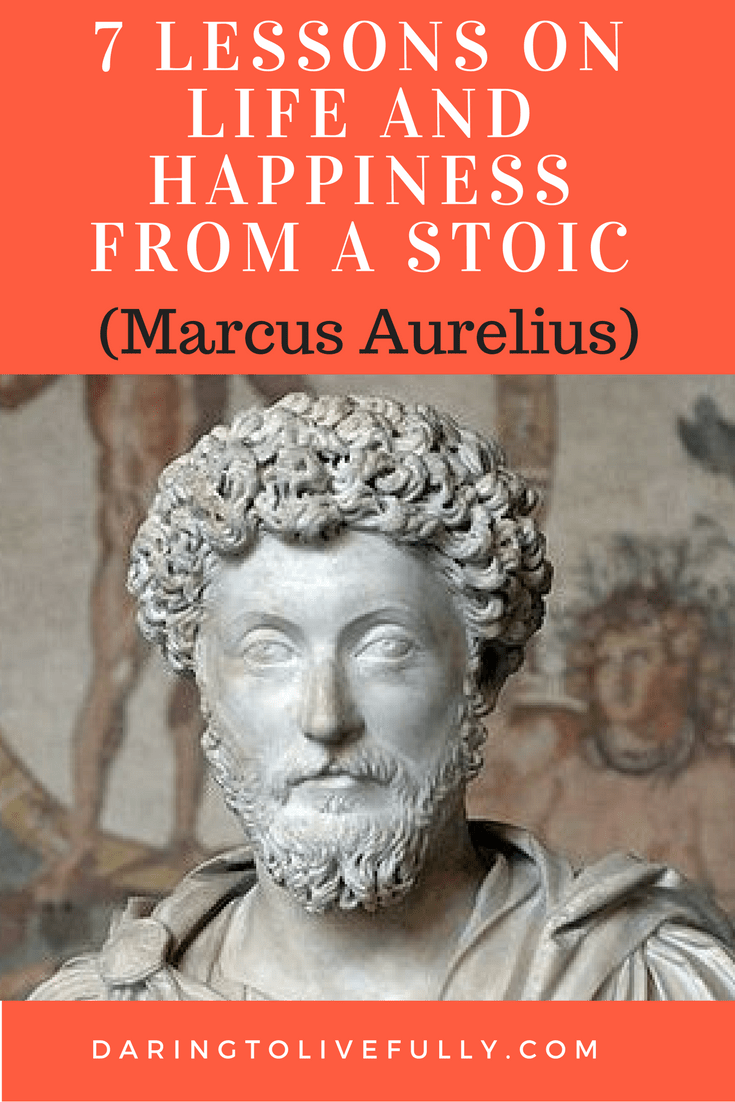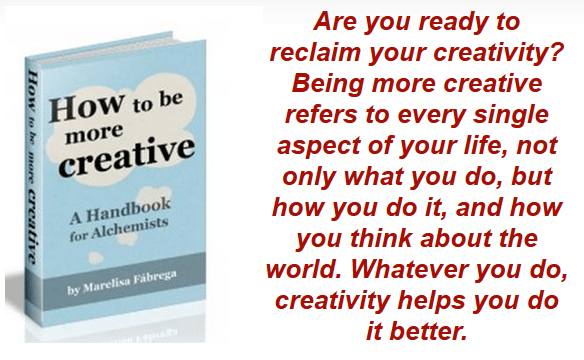
Some have called stoicism the ultimate self-improvement philosophy.
Marcus Aurelius was the last of the “Five Good Emperors”, the five rulers who presided over the most majestic days of the Roman Empire from 96 to 180 AD. Edward Gibbon, author of “The History of the Decline and Fall of the Roman Empire”, had the following to say about these five rulers:
“Their united reigns are possibly the only period in history in which the happiness of a great people was the sole object of government.”
 In addition to being one of the “Five Good Emperors”, Marcus Aurelius was a Stoic. Stoicism is a philosophy for life which was founded by the Greek scholar Zeno. In addition to Marcus Aurelius, Stoicism’s most famous adherents were the Roman statesman Seneca (4 BC – 65 AD) and the Greek philosopher Epictetus (55 – 135 AD). Stoicism can be summarized as follows:
In addition to being one of the “Five Good Emperors”, Marcus Aurelius was a Stoic. Stoicism is a philosophy for life which was founded by the Greek scholar Zeno. In addition to Marcus Aurelius, Stoicism’s most famous adherents were the Roman statesman Seneca (4 BC – 65 AD) and the Greek philosopher Epictetus (55 – 135 AD). Stoicism can be summarized as follows:
“Stay calm and serene regardless of what life throws at you.”
One of the most succinct statements of Stoic philosophy that we have available today is the book “Meditations”. It was written by Marcus Aurelius during the last ten years of his life while he was on military campaign.
“Meditations” is a collection of notes Marcus Aurelius wrote for himself as a kind of self-instruction or self-improvement guide. It was a means of practicing and reinforcing his own philosophical convictions.
Although Marcus Aurelius didn’t write it for publication, “Meditations” is one of the greatest texts to have come down to us from classical antiquity. These writings, collected in 12 short books, take the form of quotations varying in length from one sentence to long paragraphs.
In “Meditations”, Marcus Aurelius tries to answer the deep questions about the meaning of life, such as the following:
- Why are we here?
- How should we live?
- How can we deal with criticism?
- What is the best way to handle adversity?
- How does one respond to suffering?
Below you’ll find 7 life and happiness lessons from Marcus Aurelius contained in several quotes from “Meditations”.
Lesson 1 – Take Control of Your Thoughts
Marcus Aurelius explains that you always have control over your mind. Regardless of what may be going on around you, you choose what to tell yourself about what’s happening, and that determines how you feel.
In addition, your happiness doesn’t depend on any external event. Instead, it depends on what you’re thinking. Here are seven quotes from “Meditations” that reflect the importance of taking charge of your thoughts:
“You need to avoid certain things in your train of thought: Everything random, everything irrelevant. And certainly, everything self-important or malicious. You need to get used to winnowing your thoughts, so that if someone says, ‘What are you thinking about?’ you can respond at once (and truthfully) that you are thinking this or thinking that.”
——————————————-
““Very little is needed to make a happy life; it is all within yourself, in your way of thinking.”
——————————————-
“You have power over your mind, not outside events. Realize this, and you will find strength.”
——————————————-
“If you are distressed by anything external, the pain is not due to the thing itself, but to your estimate of it; and this you have the power to revoke at any moment.”
——————————————-
“The happiness of your life depends upon the quality of your thoughts.”
——————————————-
“Our life is what our thoughts make it.”
——————————————-
“Today I escaped from anxiety. Or no, I discarded it, because it was within me, in my own perceptions; not outside.”
——————————————-
“Take away your opinion, and there is taken away the complaint. Take away the complaint, and the hurt is gone.”
Lesson 2 – We Each Have a Purpose
Marcus Aurelius believed that we each have a purpose; something we were created for. It is our duty to carry out that purpose. Here’s a quote that reflects this:
“Everything, a horse, a vine, is created for some duty. For what task, then, were you yourself created? A man’s true delight is to do the things he was made for.”
In addition, Marcus Aurelius believed that your purpose is what gets you out of bed each morning. Here’s Marcus Aurelius:
“At dawn, when you have trouble getting out of bed, tell yourself: ‘I have to go to work–as a human being. What do I have to complain of, if I’m going to do what I was born for–the things which I was brought into the world to do? Or is this what I was created for? To huddle under the blankets and stay warm?’
–But it’s nicer here…
So you were born to feel ‘nice?’ Instead of doing things and experiencing them? Why aren’t you running to do what your nature demands?
–But we have to sleep sometime…
Agreed. But nature set a limit on that–as it did on eating and drinking. And you’re over the limit. But not of working. There you’re still below your quota. You don’t love yourself enough. Or you’d love your nature too and what it demands of you. People who love what they do wear themselves down doing it, they even forget to wash or eat. Do you have less respect for your own nature than the engraver does for engraving, the dancer for the dance, the miser for money or the social climber for status? When they’re really possessed by what they do, they’d rather stop eating and sleeping than give up practicing their arts. Is helping others less valuable to you? Not worth your effort?“
Lesson 3 – Stay In the Now
I don’t know if Eckhart Tolle, author of “The Power of Now: A Guide to Spiritual Enlightenment”, was inspired by Stoicism, but mindfulness—of which Tolle is a vocal proponent–is a cornerstone of Stoic philosophy.
Here are three Marcus Aurelius quotes in which he reminds himself to stay focused on the here and now:
“Confine yourself to the present.”
——————————————-
“Forget everything else. Keep hold of this alone and remember it: Each one of us lives only now, this brief instant. The rest has been lived already, or is impossible to see.”
——————————————-
“Every hour focus your mind attentively on the performance of the task in hand, with dignity, human sympathy, benevolence and freedom, and leave aside all other thoughts. You will achieve this, if you perform each action as if it were your last.”
Lesson 4 – Bad Actions Are the Result of Ignorance
Stoics value clear judgement and the pursuit of reason. They believe that unhappiness and evil are the result of ignorance. Thus, if someone is unkind– or acts boorishly– it’s because they’re not thinking clearly. Here’s a passage from “Meditations” that makes this point:
“. . . Today I shall be meeting with interference, ingratitude, insolence, disloyalty, ill-will, and selfishness – all of them due to the offenders’ ignorance of what is good or evil. But for my part I have long perceived the nature of good and its nobility, the nature of evil and its meanness, and also the nature of the culprit himself, who is my brother (not in the physical sense, but as a fellow creature similarly endowed with reason and a share of the divine); therefore, none of those things can injure me, for nobody can implicate me in what is degrading.’”
Lesson 5 – Constantly Turn Inward
I’m a meditation enthusiast, and so was Marcus Aurelius. Here’s what he has to say about turning inward:
“People try to get away from it all — to the country, to the beach, to the mountains. You always wish that you could too. Which is idiotic: You can get away from it anytime you like.
By going within.
Nowhere you can go is more peaceful — more free of interruptions — than your own soul.”
Lesson 6 – Stop Seeking the Approval of Others and Stay In Your Own life
Marcus Aurelius writes that worrying about the opinion of others is a waste of time. In addition, neither praise nor criticism from others is important because neither affects the intrinsic value of whatever, or whoever, is being judged and evaluated. Look at the following Marcus Aurelius quotes on this issue:
“Choose not to be harmed—and you won’t feel harmed. Don’t feel harmed—and you haven’t been.
We all love ourselves more than other people, but care more about their opinion than our own.
It can only ruin your life only if it ruins your character. Otherwise it cannot harm you—inside or out.
The tranquility that comes when you stop caring what they say. Or think, or do. Only what you do.
It’s silly to try to escape other peoples’ faults. They are inescapable. Just try to escape your own.
Leave other peoples’ mistakes where they lie.”
——————————————-
“How much time he gains who does not look to see what his neighbor says or does or thinks, but only at what he does himself, to make it just and holy.”
——————————————-
“Do not waste what remains of your life in speculating about your neighbors, unless with a view to some mutual benefit. To wonder what so-and-so is doing and why, or what he is saying, or thinking, or scheming—in a word, anything that distracts you from fidelity to the ruler within you—means a loss of opportunity for some other task.”
——————————————-
“Or is it your reputation that’s bothering you? But look at how soon we’re all forgotten. The abyss of endless time that swallows it all. The emptiness of those applauding hands. The people who praise us; how capricious they are, how arbitrary. And the tiny region it takes place. The whole earth a point in space . . .”
——————————————-
“Beautiful things of any kind are beautiful in themselves and sufficient to themselves. Praise is extraneous. The object of praise remains what it is—no better and no worse. This applies, I think, even to ‘beautiful’ things in ordinary life—physical objects, artworks. Does anything genuinely beautiful need supplementing? No more than justice does—or truth, or kindness, or humility. Are any of those improved by being praised? Or damaged by contempt? Is an emerald suddenly flawed if no one admires it?”
Lesson 7 – How to Deal With Obstacles
One of the lessons that Marcus Aurelius teaches us in his “Meditations” is to turn obstacles into opportunities. Here’s a great quote that refers to this:
“In a sense, people are our proper occupation. Our job is to do them good and put up with them. But when they obstruct our proper tasks, they become irrelevant to us–like sun, wind, and animals. Our actions may be impeded by them, but there can be no impeding our intentions or our dispositions. Because we can accommodate and adapt. The mind adapts and converts to its own purposes the obstacle to our acting. The impediment to action advances action. What stands in the way becomes the way.”
In addition, Marcus Aurelius admonishes that we should deal with any obstacles we find along the way quickly, instead of wasting time complaining about the obstacle. Look at the following:
“A cucumber is bitter. Throw it away. There are briars in the road. Turn aside from them. This is enough. Do not add, ‘And why were such things made in the world?’”
Conclusion
The teachings of Marcus Aurelius remain as relevant today as they were almost 2,000 years ago: go within; stop worrying about the opinions of others; stay in the present; take charge or your thoughts; and focus on what you can control. Live your best life by applying the Stoic philosophy.





Related Posts:




 Marelisa Fabrega is a lawyer and entrepreneur. She holds a Bachelor of Science in Business Administration from Georgetown University in Washington, D.C., as well as a Juris Doctor from the Georgetown University Law Center. You can learn more about her
Marelisa Fabrega is a lawyer and entrepreneur. She holds a Bachelor of Science in Business Administration from Georgetown University in Washington, D.C., as well as a Juris Doctor from the Georgetown University Law Center. You can learn more about her 





